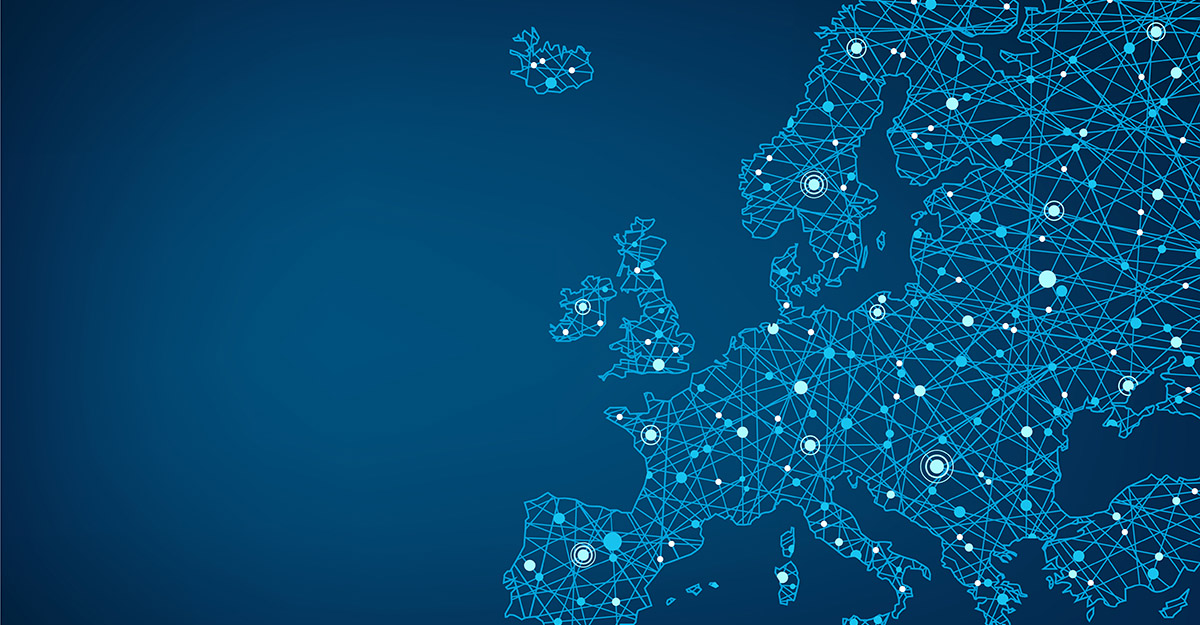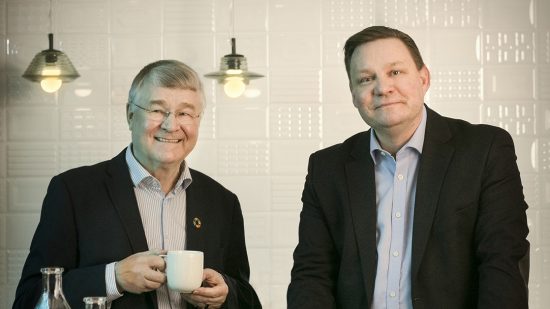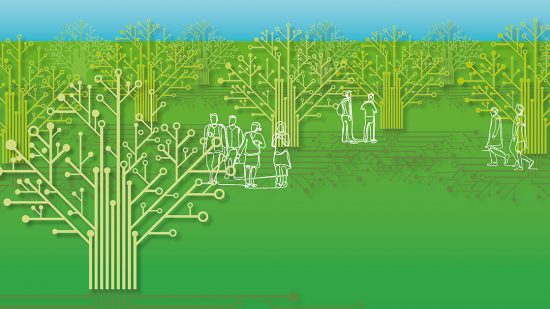Will we be able to declare with satisfaction by 2030 that online attacks, the large environmental footprint of communications technology, unequal availability of digital services, and the supremacy of global platform companies are a thing of the past?
This is certainly the hope of Principal Researcher and data scientist Katja Bego. She is the author of the Next Generation Internet (NGI) report from 2020, funded by Horizon 2020, defining the Internet’s new key principles, implementation policy and infrastructure.
“The strategy offers tools to the European Commission as it begins to build a human-centric, sustainable and safe digital environment in Europe,” says Bego, who works at Nesta, a UK innovation foundation and think tank.
”The democratisation of the Internet has expanded opportunities of the digital economy, as more and more actors are able to join in the competition.”
Katja Bego, Nesta
Oligarchy replaced by democracy
According to the report, a result of cooperation by several European universities and Nesta, the Internet of the future will prosper with the support of five key pillars. The first is democracy, entailing that the power held currently by a few global businesses must be disrupted. Citizens should have more ownership over their own personal data and identity, and a real voice in the development of new innovation.
“The democratisation of the Internet expands the opportunities of the digital economy, as more and more actors are able to join in the competition as equal partners,” adds Bego.
The second pillar is effective protection against external threats – a human-centric Internet cannot be threatened by, for example, unexpected attacks by cybercriminals.
The third pillar is sustainability.
“If we want digitalisation to serve the fight against the climate crisis and the European Green Deal, we must ensure that the technology itself does not consume natural resources excessively. Equipment must be durable and suitable for the circular economy.”
Trust reduces risks
Bego lists trust as the fourth pillar. If the goals of the NGI strategy are achieved, in less than a decade we will be able to operate online without any risk of our money or identity being stolen, and most importantly: trust strengthens social cohesion and reduces the risk for geopolitical conflicts.
The fifth pillar is inclusion, meaning that the digital environment must be available to all. According to the report, this means removing social, economic and infrastructural barriers to access, but also the development of a flourishing multilingual internet, where services are available and safe to use for underrepresented communities.
Data wallets and journalism
The Next Generation Internet (NGI) report specifies practical measures to ensure that the five-pillar vision is realised.
A data wallet is a practical example. This will enable each citizen to access and manage their digital identity and personal data. Another practical solution is an inexpensive, efficient broadband connection that citizens know how to use safely.
The effects of fake news and political trolling are tackled with high-quality journalism and information flows, for which they suggest the creation of a dedicated News Innovation Fund.
Certification ensures quality
Investments must support European carbon-neutral technology production that is based on the circular economy. Users will be provided with information about energy consumption and other environmental impacts resulting from personal digital behaviour, suggests the Next Generation Internet report.
“Europe will become the pioneer in green digital technology. Around the world, the Made in Europe brand will be equivalent to reliability, ecological choices and a human-centric approach,” says Bego.
In order for this ambitious ethic to be implemented in different areas, in equipment and content, in network infrastructure and user’s behaviour, we must be able to make quality assessments. The strategy suggests the establishment of an auditing system operating under the European Commission, making certification a requirement to be included in the European, next-generation Internet.
Good for all
No more and no less: data must benefit everyone regardless of where you live, or your income level, education or worldview. The digital raw material accumulating in data centres around the world must be harnessed to improve people’s quality of life and wellbeing, and to reduce ill-feeling.
The Open Data Institute (ODI), which has been operating from London for about a decade, is aiming for a fair-play digital future together with businesses, political decision-makers, NGOs and research organisations.
”An organisation that has got stuck in its own data territory will be left behind by its competitors that open up their boundaries to others. Transparency helps to develop innovation that bring added value to all.”
David Tarrant, Open Data Institute
Change requires effort
Doctor David Tarrant is ODI’s Programme Lead in data literacy. He is working on a data literacy programme for ordinary citizens and ethical certification for data professionals. Tarrant estimates that we are currently in a phase in which data will be changing from something that is difficult to grasp, managed by only a select few, and even seen as a frightening resource and a tool for wielding power, into democratic material that can be easily converted into something useful.
“Obviously nothing will change on its own. It takes a lot of work to harness data to serve economic and technological innovations and the wellbeing of communities.”
The ODI’s vision is a world where data works for everyone.
In this future, people can trust organisations to manage data ethically, and for the benefits to be distributed fairly.
“This goal is possible when data can be utilised as efficiently as possible. We must obviously also protect people’s privacy, companies’ business secrets and national security. We must find the right balance, and this is exactly what the ODI is working towards,” explains Tarrant.
True stories of successes
While lifting the veil of suspicion off data, Tarrant can already relate some success stories. He has realised that people do not necessarily appreciate that it is actually data that creates the foundation on which successes are built.
His examples span from the early days of humanity to acute needs of today.
“Viking settlements found in Canada provide us with new insight into history. The comparison of water permeability of different soils helps grape farmers optimise their harvest expectations. The incredibly quick leap by vaccination technology offered a cure against the Covid pandemic – when we can process huge amounts of data, obtained from various sources, quickly and accurately, we obtain concrete solutions to solving problems in many walks of life.”
Tarrant finds data jealousy a regrettably common, completely useless and actually detrimental phenomenon.
“An organisation that has got stuck in its own data territory will be left behind its competitors that open up their boundaries to others, in order to develop innovations that bring added value to all parties concerned.”
Natural resources are also wasted when overlapping material produced by different parties load servers and consume energy.
Crisis at our hands
The coalition FutureDotNow, founded in October 2019, does not mince words as it describes the current state of digital skills: The UK faces a digital skills crisis.
The coalition consists of more than 150 businesses and other organisations that are concerned about the future of our society that is becoming more digital at a high rate.
”We want to encourage the entire society to adopt operating models leading to a permanent culture change.”
Liz Williams, FutureDotNow
Figures published by FutureDotNow provide grounds for declaring a state of crisis: up to 36% of the UK workforce, more than 11 million people, do not have the basic skills required to run their errands online or perform necessary work. In 2020, only 23 per cent of the workforce had received data and communication technology training by their employers. More than 10 million people need help to run their errands online and to use their smart devices.
FutureDotNow reminds that insufficient digital skills not only result in social inequality, but also weakens productivity, ability to reform, and performance. An organisation that struggles with new technology is like a smart phone battery that hasn’t got enough power to run all the necessary applications.
Exclusion in their prime years
FutureDotNow emphasises that the more people cannot keep up with digitalisation, the more it erodes the UK’s competitiveness and productivity. A majority of the potential of advanced technology is untapped as not enough people have the necessary digital skills.
FutureDotNow is aiming to achieve a digitally united kingdom where everyone has sufficient tools and the skills to use them. If this can be achieved, both the economy and the people will thrive.
But how to reach this vision, when in reality millions of people have no access to the Internet or smart devices and with no motivation try to see the positives in digitalisation?
What is tragic from a business point of view is that 40 per cent of the people with very little digital skills are in their prime working age.
FutureDotNow’s vision about change is based on their ideology that problems must be solved where the negative impacts are greatest. FutureDotNow includes not only public organisations – such as cities and higher education institutions – but also numerous businesses, such as IBM, Marks & Spencer and Deloitte.
Free learning for all
Accenture, another member of the coalition, is pitching in by offering several free online courses. According to Accenture, almost 160,000 people participated in their courses during the lockdown.
Their courses range from beginner to advanced level; the themes include anything from day-to-day online transactions to web analytics, basic working life skills and guidelines for social media. In the autumn of 2021 there were nine courses available.
Lloyds Banking Group reports that thousands of people have found their free Lloyds Bank Academy digital skills training courses. The courses teach you key competences needed for individuals, businesses and charities.
Upstairs, downstairs
“The nation is divided into two: those who have the ability to succeed in the digitalised world and those who lack basic skills,” says FutureDotNow’s CEO Liz Williams.
We have to address this situation and bridge the gap so that people can take care of their personal affairs online and that businesses are up to the challenges they face.
“The key is to work together on a broad base. FutureDotNow’s work is based on cooperation with business actors. We create solutions together to improve the digital basis of our country.”
This article was first published in Finnish in TIEKE’s Tiedosta magazine 2/2021.
David Tarrant was interviewed for this article. Katja Bego’s ideas were taken from the Nesta website. The FutureDotNow part is a translation of the organisation’s website, and Liz Williams’s comment was received by email.
EU Parliament works on not only the technologies but also the rules, safety and competences
The EU is currently preparing new rules for digital services to promote competitiveness, innovation and growth.
Another goal is to improve online safety, stamp down on illegal online content and to ensure freedom of expression, press and democracy online.
The Parliament wants the new rules to guarantee that artificial intelligence is used ethically.
The Parliament approved rules in April 2021 to prevent terrorist content from spreading online.
The MEPs also were in favour of the establishment of a new European cyber security centre in May 2021. This centre will improve Europe’s ability to fend against cyber threats. The Parliament wants the European Skills Agenda to recognise the need for teaching people digital skills, as 42% of EU citizens lack such basic skills.
Source: Europe’s digital future – Consilium









